Need some help with career planning? This ultimate guide is exactly what you need to start preparing for your next move after high school.
Life after high school might be intimidating and nerve-wracking to think about. I completely understand! When I was a senior in high school, I was in your exact position. But, having a plan in place helped to calm those anxious feelings.
It is super important to begin the career planning process while still in high school. Let’s face it, some of this information can be really confusing for a high school student. I want to help you!!
It is never too early to begin considering possible careers. I want to take the stress away and make this process a fun and exciting experience for you. I’m here to walk you through all the information you need to know to plan for your dream career.
This post is all about career planning for high schoolers.
BEST GUIDE TO CAREER PLANNING:
Step 1: Explore Your Interests
This is key! You should first consider the activities and interests you find fulfilling and enjoyable before starting your career planning. You should make plans for a career that links with your life’s passions and gives you joy because, in the majority of careers, you will likely spend more time at work than at home relaxing.
Some of you are likely saying to yourself, “I have no idea what my interests are,” or you may be saying, “I’m not good at anything.” Please get a piece of paper and a writing utensil. Once you have something to write with and a piece of paper, I’m going to challenge you to write down your answers to the questions below.
- What are your preferred hobbies? Why are those your preferred hobbies?
- Which class subject(s) do you find most enjoyable? Why do you find that subject so interesting?
- What are you passionate about?
- What are your areas of strength?
- What lifestyle do you hope to accomplish through your career?
- Do you desire summers off from work?
- Do you want to work from home?
- Do you intend to travel frequently?
Answering these questions completely will help you start your journey of self-discovery for your career, so set aside some quiet time free from interruptions and take this part of career planning very seriously.
Once you have the answers to these questions, you should next focus on researching career options.
Step 2: Explore Career Options
So at this point, you have completed step one. You have answered the necessary questions that would have pulled thought-provoking responses. Good for you!!
How do you currently feel? Any sense of relief yet? We are not close to being done, let’s take it a step further by exploring career options.
For this next step, let’s use a student by the name of Olivia. And by the way, this is all made up. I want to guide you step-by-step through this process.
Olivia is currently an 11th grader. She completed all of the step one questions and learned a lot about herself. She realized how much she enjoyed her geography class and all of her science classes. She loves the thought of having a career that would let her explore the world. Although Olivia hasn’t traveled much in her life thus far, she is excited by the idea of doing so.
Olivia decides to visit the Bureau of Labor Statistics, a trustworthy career resource that provides valuable information. It provides anyone with useful information to make an informed decision on the career path a student would like to take.
Just by visiting the website, you can get information on the different salaries for many different careers; cities, regions, and states that pay the most; whether there will be any employment openings in the future, including the best states for employment, plus more! It has everything you need to know to make the career decisions you’ll need to make.
Seriously, the information on the Bureau of Labor Statistics is so good!!
Back to Olivia. So, now that Olivia has explored her interests, she goes to www.bls.gov to figure out what career aligns with her desires. Let’s navigate the website with Olivia together.
Go to www.bls.gov.
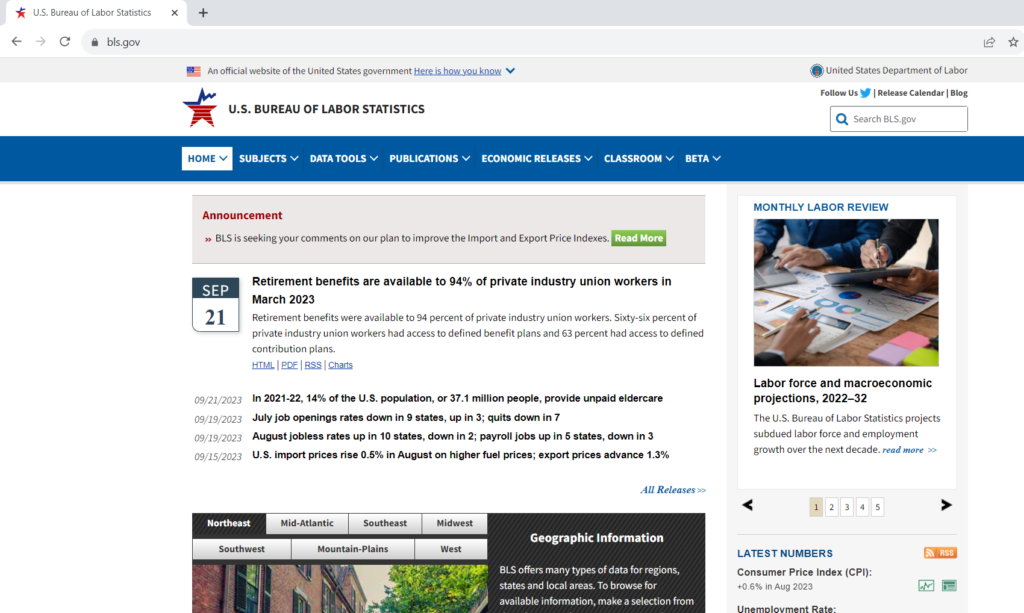
Click Publications then click Occupational Outlook Handbook.
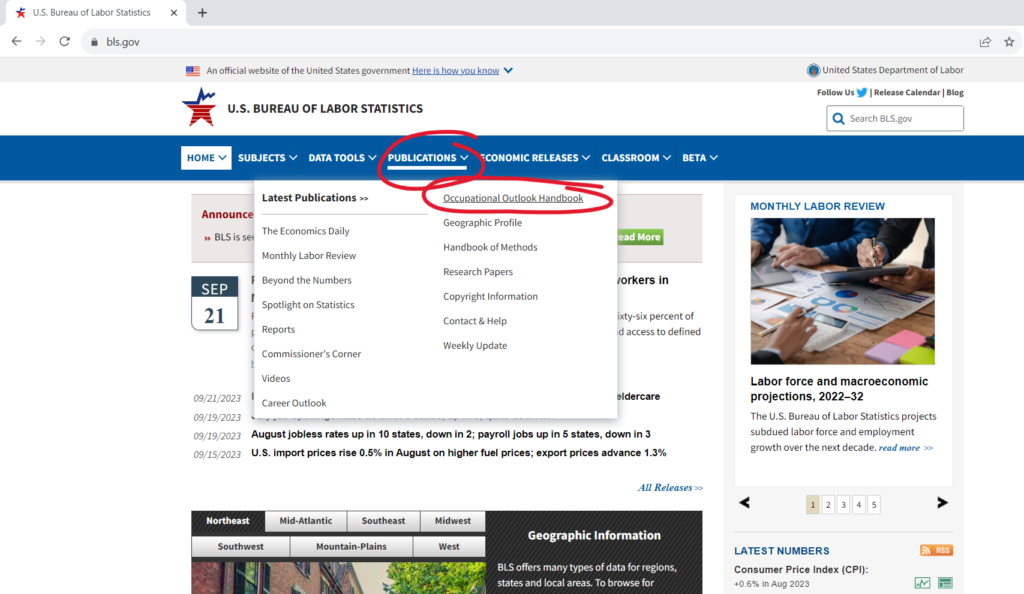
Olivia noticed Occupational Groups. She clicks Transportation because she has an interest in geography and traveling the world.
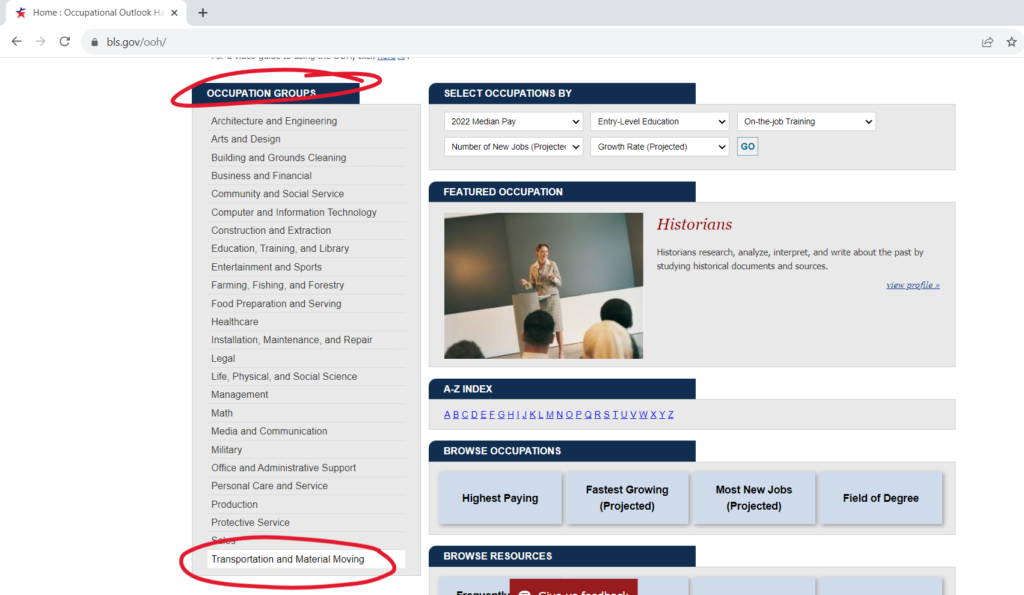
Olivia spots occupations that catch her attention which are airline pilot, commercial pilot, and flight attendant. These are careers that Olivia never thought about getting into until now.
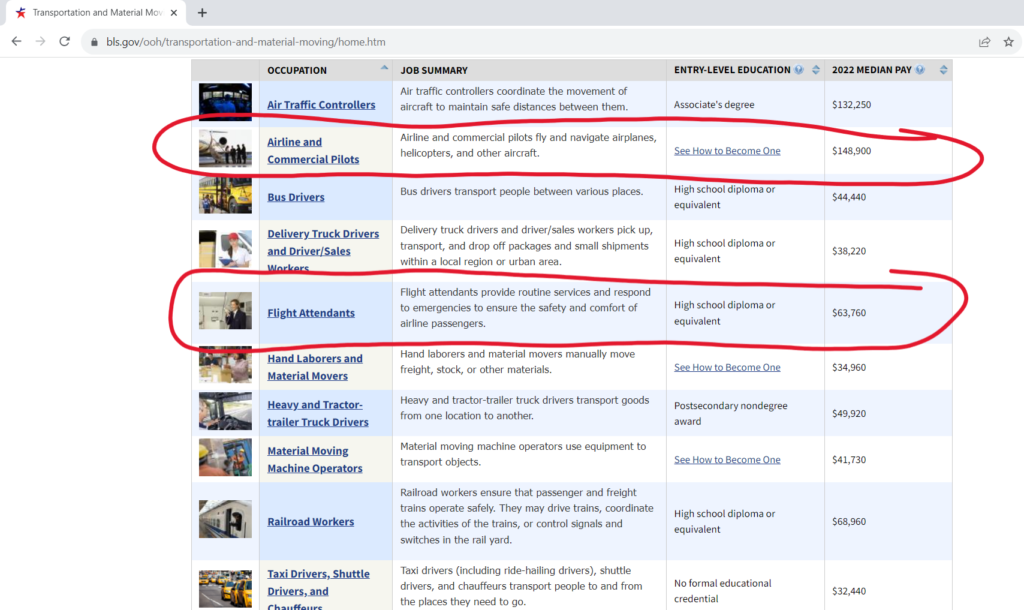
The website honestly has so much to offer! I’ve only shown you a tiny piece of the pie so you can get familiar with the website. Take a moment and navigate through the website. You can find out so much information by clicking away!
Step 3: Explore Education Requirements
At this point, you have completed steps one and two. Perfect!! It’s time to dig deep into the educational requirements for your selected career, so let’s get started. Along with learning about the educational requirements, you should also learn about any other certificates, licenses, or permits that must be held before applying for the position. Let’s use Olivia as an example again.
In step two, Olivia found some things that caught her attention. She clicked on “how to become one” and BAM! Look at all of this info!! This is pure gold.
Look at this screenshot image below, you will find the education and training needed to become an airline or commercial pilot.
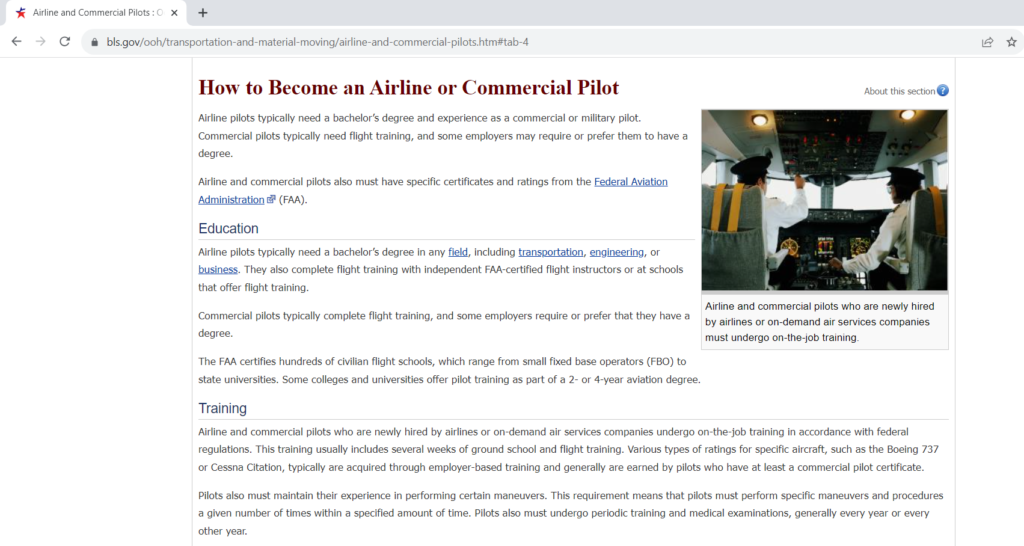
You can find the licenses and certifications required for being an airline or commercial pilot.
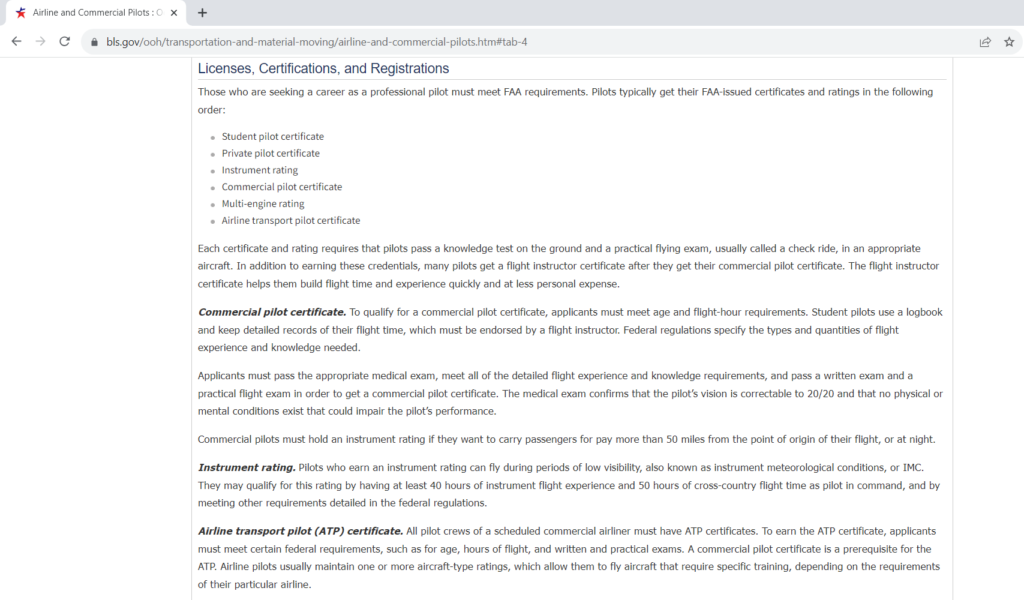
Though, I am showing you screenshot examples from bls.gov, you can easily do your research and find the specific information that you are looking for whether that be through another website or not. Make Google your best friend when searching for specific career information and make sure you are visiting a reliable website.
Also, if you need more help, don’t be afraid to speak with your school counselor. Remember, we are here to help!
Let’s put an end to all the confusion surrounding career planning! When you do your research, I want you to be completely confident. When it comes to choosing what to pursue after high school, I want you to be well-informed. I want you to be so knowledgeable about this that you can teach your friends and other students how to accomplish a career plan.
The next part of making an informed decision is exploring college options.
Step 4: Explore College Options
If your dream career requires that you further your education after high school to obtain a degree or a certificate of some sort then you want to be sure to do your research. RESEARCH! RESEARCH!! RESEARCH!!! I can’t say it enough.
You should consider and look for the following information when considering furthering your education:
- How much is it going to cost to further your education?
- How are you going to afford to further your education?
- If you decide to go out of state, does the school have an out-of-state tuition cost?
- Which schools provide the best education in your field?
- What are the requirements to get accepted into this school? Do you qualify?
- If you are seeking the opportunity to work while furthering your education, does the school offer work-study or work aid opportunities?
- Does this school have the required degree or certificate that my career requires?
- Can you schedule a tour with this school?
Again, become best friends with Google! Use Google to look up things like “Best Cybersecurity College Programs.” Websites that list colleges to watch out for can be found using Google. Make a list of the colleges that catch your attention.
Since furthering your education typically isn’t free, you need to be absolutely certain that you are making the best choice for yourself and your future.
Step 5: Explore Getting Experience
At this point, you have explored your interests, explored your career options, explored education requirements, and explored college options. The last key component that I want to mention for career planning while in high school is getting some experience.
How can a high school student gain experience?
You can get experience through…
- Internships
- Employment
- Volunteering
- An elective class
- A club
- Other extracurricular activities
You’re even more likely to be eligible for and receive college scholarships if you gain experience while you’re still in high school. It sets you apart!
By taking the necessary steps to gain experience, you put yourself ahead of the competition. It helps you figure out if that specific field is something you are actually interested in.
STORYTIME!!
When I was in the 9th grade, I wanted to be an OBGYN. I wanted to deliver babies!!! Well, so I thought…
Knowing that I wanted to be in the medical field, I joined a medical-centered club. Every Wednesday, club members had to come to school wearing scrubs, remain after school to discuss medical issues, and take an anatomy class.
Guess what I shortly found out? I hated it!! OMG! I wanted out and FAST!! The medical field just wasn’t for me.
It was because I got the experience that I was able to quickly find out whether it was a good fit for me or not.

Leave a Reply